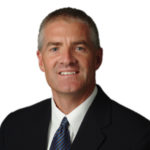On December 14, 2021, a dear man passed away. You would not have heard of him. His obituary says, “He had a long and wonderful life.”1 He was 85 years old when he passed.
I first met Joe (Pete) Eastridge in 2012 at the dump in Union County, Tennessee. That was where, at age 76, he was working. The dump is open Monday, Wednesday, Friday, and Saturday (just in the morning). Residents drive up and unload larger items into huge dumpsters, or regular garbage into the compactor. Pete helped guide people’s decisions and operated the compactor.
“Hi, I am Dave. My wife and I just moved into the area.”
“I’m Joe Eastridge, but friends call me ‘Pete.’”
“Nice to meet you. Can I call you Pete?”
“Reckon so. Just about everybody has since grandpa gave me that name. I have an older brother named Bill. Grandpa took to calling him ‘Trigger Bill.’ When I came along, I was given the name Joe, but he started calling me ‘Pistol Pete’ and so I have been Pete ever since.”
Over the next several years, Pete and I enjoyed numerous delightful conversations. I learned how to tell when his back was bothering him, even if he made every attempt to hide the pain.
The Wednesday after Labor Day weekend, 2014, I had a full load because my wife and I had hosted numerous guests for four days. When I pulled into the lot, Pete was not at all himself. I had to ask.
“What’s going on, my friend?”
“Something terrible happened two days ago, in my yard. A man died.”
“What? Oh no! How? What happened?”
“He was there trimming my trees. I have six that needed branches cut. He was on the last tree and decided not to use his rope to tie in. He fell about 60 feet and landed on his head. I watched him die.”
My mind was racing. A tree trimmer? We had a strong storm that year, back on June 15. A microburst. It took down two large white oaks on our property. Snapped them in half about 15 feet high on their 20” diameter trunks. The man we hired to clean up the fallen trees and knock down the remaining trunks was Jimmy Brantley. Thirty-seven years old, strong as an oak tree himself, Jimmy truly impressed us. He worked hard, was extremely skilled, and exuded kindness.
“Pete, what was the man’s name?”
“Jimmy Brantley.”
Now I was grieving twice over.
Jimmy died on September 2, 2014. His obituary says he “passed away peacefully in the arms of our Lord.”2 Well, maybe so. He certainly died dramatically, but I pray he was caught in the arms of God.
A Guess Ventured
These two men, Pete and Jimmy, were of modest means. They had that in common. They shared something else: They were genuinely decent human beings. They worked hard. They made a difference.
My guess is, neither one of them had ever been given sound financial advice from an independent financial advisor. Did someone help Pete plan for retirement? Doubtful. Why was he still working, back pain and all, at 76? Did Jimmy own life insurance? He was engaged to be married when he died. Did his fiancée, Julie, receive death benefits to help her remember his enduring love for her? No.
Independent financial professionals are busy chasing the affluent market and the large sale and staying focused on managing assets.
Lessons from Ukraine
In 2018 I began traveling regularly to Eastern Europe. This includes four trips to Ukraine so far. I was there most recently in October 2021 for three weeks.
I planned to be in Ukraine this Spring from February 21 to March 11. When things became too dangerous, we switched our in-person seminars to on-line webinars.
On Wednesday, February 23, my team delivered a Webinar on “Emotional Intelligence in Times of Crisis.” There were 114 people, mostly university students, in attendance. The next morning, they all awoke before dawn to air raid sirens and explosions.
Since that fateful day I have been keeping in touch with as many of our Ukrainian friends as can be reached.
Not a single one of these people are wealthy or affluent. None of them wields power, enjoys fame, or has broad influence. Yet, while the world is watching, these very same people are proving to be powerfully inspirational and rich with courage, generosity, and tenacity.
Consider these examples:
- Rather than flee her country, Oksana decided to stay and serve the people of Irpin. She told me that she had saved up food and water and other provisions to last a few weeks. The day the war began she went to her church where members were preparing a hot meal for the hundreds of people fleeing the shelling. She said, “I just help distribute the food, sit and listen to their stories and ask them if I can pray for them.” On March 8, she was finally forced to flee. One headline that day read: “Russian Troops Pounded the Town of Irpin. Now They’re Moving into Ukrainians’ Homes.”3
- I met Martha in her hometown of L’viv. She refused to leave her country. Instead, two weeks into the war, she was enormously busy. “Our church is helping internally displaced people and refugees—there is a lot of work to be done. I am emotionally exhausted, but I am also able to interpret for TV journalists, and I am very blessed with that since I love to do it. I do not plan to leave Ukraine before our victory. It will surely come. It is my land, and I will defend it with arms if needed.”
- Artem is mild mannered and a hard worker. “I took my mother to the West border of Ukraine. Hopefully tomorrow she will go to Germany. I am right now in the Ukrainian army. We are having training sessions now.”
- Polina translated for one of my seminars in Kyiv. She wrote: “Right now I am in Budapest with my mom and my sisters. Our dad couldn’t cross the border because of the laws that require men to remain in our country. He transports material needed by the army and helps people out of dangerous zones. We are quite worried for him.”
These are the acts of service and selfless attitudes of ordinary people.
Where Are the Powerful?
It may be just my jaundiced view but, in general, I have found few inspiring stories of heroic acts performed by the wealthy and the powerful. (In truth, it was one such man who started the war in Ukraine.)
Meanwhile, the stock markets reflect the news. The fluctuations are like an EKG of how the investors are feeling about their world. Fuel prices soar. Inflation rages. Uncertainty abounds. The wealthy experience the most dramatic reversals of recent gains. Investment advisors are scrambling to find better ways of protecting assets.
Important Questions for the Independent Financial Professional
Who do we look to when we are in a crisis? Your water line breaks. Do you call the owner of the plumbing company? A fire breaks out in your attic. Do you call the mayor? Amazon messes up your order. Do you complain to Jeff Bezos?
If we look to the common person when we are in great need, are we there for them in their need?
Everyday people will always prove to be the ones who right the wrongs of the powerful. They are the ones who pick up the pieces. Should we not be willing to offer them our best?
Application:
A friend and very successful financial advisor once told me, “I just cannot afford the time to meet with, and give advice to, people in the middle-income range.”
Really? We brainstormed, and she found out maybe it comes down to how we view the opportunity. She believed that prospecting for middle class clients was not cost-efficient. What if there was no cost to prospecting?
If an independent financial professional truly believes in the products and services our industry represents, and compassionately sees the needs of the vast middle class, time can be allotted, and the expense justified, by simply leveraging everyday encounters with people of modest means.
It starts by asking a few simple questions:
- Have you planned for, and are you and your family prepared for, the unexpected?
- Have you put in place the process to send money ahead into your future?
Examples:
- An insurance agency utilizes DoorDash® or Uber Eats® to have food brought in when clients come to the office for lunch appointments. The person delivering these meals is of modest means. They are already at the office. “Do you know what we do here? We help people achieve their dreams and stave off financial nightmares.”
- In an asset management firm, the toner cartridges and printer paper arrive by delivery van. The very person dropping off the package likely needs the services of a financial professional. There is only one way to find out. Ask.
- In a financial planning office, all the ceiling fixtures needed to be retrofitted with LED lights. The person who came to install them was in the office for several hours. A casual conversation could uncover needs that can be met.
- All the planners in a financial advisory firm go out to eat at a nearby restaurant. The server is someone they all know by name but know nothing about. It only takes one interested person.
- The internal computer network of an independent financial services office requires an upgrade. Outside expertise is needed. The woman who brings the needed expertise is in the office for a day and a half. The financial expertise she needs is available, and only needs to be offered.
- When visiting an important client, the financial advisor strikes up a conversation with the office manager. More important than discussing the news, recent sporting events, or the weather is discovering how he can best be served.
Summary
The marketplace is full of people like Pete and Jimmy. The independent financial professional who wants to make the greatest difference in the world can start by paying attention to the people who make the world go around.
Who is going to be the belt or belt loop to hold them up when they need our products, processes, and expertise? Who will be the real hero?
The world is watching.
Footnotes:
- https://www.dignitymemorial.com/obituaries/tazewell-tn/joe-eastridge-10488803.
- https://www.cooke-campbellmortuary.com/memorials/james-brantley/1940899/obituary.php.
- https://www.buzzfeednews.com/article/christopherm51/ukrainians-fleeing-russian-bombing-irpin.




























